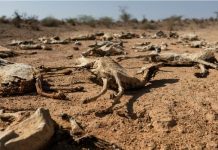Africa-Press – Angola. Twenty billion kwanzas is the amount disbursed by the Agrarian Development Support Fund (FADA), from 2020 to April 2024, to finance 2,347 agricultural projects in the country, reported this Sunday, in Luanda, the president of Board of Directors of this institution, Felisbela Francisco.
According to the manager, in an interview, the financed volume stands out at 5.56 billion kwanzas, which materialize 442 projects, from January to April this year, representing an increase of 123 percent compared to the period of 2023, the year in which the credit portfolio stood at Kz 14.5 billion.
Regarding the distribution of credits granted by the country, Felisbela Francisco highlighted the provinces of Luanda with 23 percent of the global amount, Huila percent), Huambo (10 percent) and Namibe with 8 percent of the amount disbursed.
For this reason, in addition to reinforcing national coverage, the manager considered that these credits were fundamentally aimed at supporting the national economy, encouraging and facilitating the country’s entire production chain, through subsidized credit.
In this regard, he highlighted that individual farmers benefited from 48.09 percent of the credit in the portfolio, agricultural cooperatives 35.82 percent and micro and small companies with a fixed percentage of 15.71 percent.
The FADA manager explained that 26 percent of the credit portfolio was used to support investment, for the acquisition of modern means and equipment that enable the achievement of production and productivity objectives, in a clear conversion to a more modern cultivation system with the introduction, on a small scale, of light mechanization through motor cultivators and tractors.
The production sector benefited from 56.93 percent of the amount of the credit portfolio, for the acquisition of inputs, mainly seeds, fertilizers and pesticides, while marketing absorbed 10.97 percent of the credit portfolio aimed at acquisition of materials, construction of small storage and conservation facilities for products, as well as the acquisition of means of transporting products from the countryside to urban markets.
In turn, community funds were supported by 5.52 percent of the credit portfolio, aiming to boost production.
The main objective of the Community Funds Financing initiative is to support community funds inserted in Agricultural Cooperatives and, consequently, their members and the local community, a response to their financial needs to fundamentally face the challenges of food production in communities where they are integrated.
Agricultural mechanization
On the subject, Felisbela Francisco clarified that family farming includes in the Program the enhancement of agricultural cooperatives, providing them with easier access to tractors and motor cultivators, as well as the respective implements for the mechanization of family farming, the pilot phase of which was completed on the 7th. of May.
The second phase began with the opening of applications for entities interested in providing equipment for the program.
In this sense, FADA’s PCA stated that the second phase of mechanization is expected to directly benefit 150 thousand 950 families across the country, whose equipment will be used to prepare 196 thousand hectares during an agricultural campaign, as well as training nine thousand 57 members of cooperatives financed.
The second phase is open for the registration of companies interested in supplying two thousand 664 motor cultivators and 355 tractors with respective agricultural supports, within the scope of the Light Mechanization Program for Family Farming.
Regarding the results of the first phase of mechanization of family farming, pilot phase, he said that it allowed the financing of 150 machines, 109 motor cultivators and 41 tractors, with more than 450 people from cooperatives being trained and reaching 58 thousand 446 peasants.
According to the person responsible, in terms of production areas, in a scenario of full functioning of the financed equipment, it is estimated that the cooperatives will be able to have more than 13,500 hectares worked, capable of representing a quantitative leap, in terms of cultivation areas of more than 50 Percent.
Challenges
In compliance with the 2023-2026 Strategic Plan, the president of the FADA Board of Directors said that the objectives are defined in four pillars, specifically, the promotion and diversification of agricultural production, the improvement of processes and institutional organization, financial robustness and sustainability and social and environmental responsibility.
The Agricultural Development Support Fund (FADA) is a public, non-banking financial institution, with the mission of granting financial resources to actions aimed at the development of family farming, in the field of food production, agribusiness, infrastructure, technical innovation throughout the national territory with a view to increasing production and productivity, economic growth, environmental protection, contributing to the increasing improvement of society’s living conditions.
angop
For More News And Analysis About Angola Follow Africa-Press






